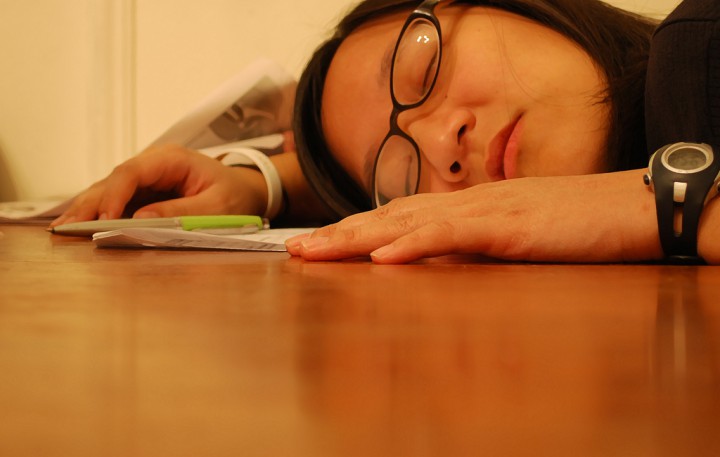Are you relying on daytime naps to get you through the day? An alarming new study suggests that regular catnaps could raise the risk of Type 2 diabetes by 45 per cent.

The Japanese study is warning that daytime sleepiness and daytime naps that are longer than an hour are two red flags tied to developing diabetes.
Then came the headlines: “Long daytime naps signal Type 2 diabetes” or “Can long naps cause diabetes?” to name a few.
READ MORE: 8 reasons why you should aim for 8 hours of sleep tonight
But the findings haven’t been published yet. Global News takes a look at the research, the counter arguments and the bottom line from a Canadian expert.
The study’s findings: Scientists out of the University of Tokyo conducted an analysis from 21 different studies that followed the health of over 300,000 people. These studies were handpicked out of 683 reports they initially identified.
The researchers say they know that naps can range from a couple of minutes to hours. In this case, excessive sleepiness was drawn out by respondents who admitted they had problems with being drowsy during the day or answering yes to questions about sleeping in daytime hours.
Turns out, admitting to daytime sleepiness was tied to a 56 per cent increased risk of diabetes. If people said they took daytime naps that were at least an hour long, their risk increased by 46 per cent.
READ MORE: Here’s how you can stave off Type 2 diabetes
Shorter naps didn’t reduce diabetes risk at all. Forty minutes seemed to be the cut-off.
The researchers note that 30-minute naps can be helpful with boosting alertness. Short bursts of sleep wrap up before deep slow-wave sleep kicks in, and that could be why people feel less groggy and disoriented than when they wake up for longer bouts of slumber.

Get weekly health news
The soundbite: “Excessive daytime sleepiness and taking longer naps were associated with increased risk of Type 2 diabetes, with a short nap not increasing the risk,” the authors wrote in their conclusion.
The counter arguments: Not everyone is sold on the findings. The Spectator in the UK, for example, said “it is difficult” to know what variables the researchers took into account. Because the findings were only presented at the European Association for the Study of Diabetes, the full study and its parameters haven’t been revealed.
READ MORE: Diabetes rates quadrupled to 422 million people in 2014, according to the WHO
Other factors, such as sleep apnea, could be at play. Maybe some of the people in the meta analysis were grappling with legitimate sleep conditions and extreme fatigue.
Soundbite: “On the other hand, extreme sloth, whether related to sheer laziness, or as a result of eating junk food that renders the consumer semi-comatose, will of course be associated with napping, which will then be associated with diabetes,” they wrote.
“Napping might be associated with diabetes, but it most certainly does not cause it. So this is an interesting study, but no one should be worried about napping itself – it has, among other benefits, been shown to enhance memory,” the Spectator notes.
The bottom line:
Dr. Jan Hux, chief science officer at the Canadian Diabetes Association, said the study is only pointing to an association – not causation.
READ MORE: Interrupted sleep just as bad for you as no sleep at all, study suggests
Sleep helps with concentration, keeps your immune system in check and regulates appetite. Lack of sleep tampers with your balance of hormones, so if you aren’t sleeping well or regularly, your metabolism takes a hit along with your eating routine.
You could be grappling with cravings or eating saltier, less healthy food, Hux warned.
READ MORE: Canadian doctor shares her tips for falling asleep and staying asleep
But that’s the problem with the chronic condition – Type 2 diabetes is often asymptomatic.
“It’s why people can have an abnormal blood sugar for years and not know it,” Hux said.
Instead, Canadians should focus on the risk factors that leave you at increased risk of diabetes. Those markers include obesity, physical health, family history, age, and ethnicity. South Asian, South East Asian, Arab, African and First Nations communities are at a higher risk.
READ MORE: Here’s why your sleepless night is giving you the munchies
Environmental factors could put Canadians at a greater risk, too: you could be struggling to afford healthier fare or you’re working two jobs making it difficult to exercise or build a routine sleep schedule.
Hux said Canadians can take a test to determine their diabetes risk here.
carmen.chai@globalnews.ca
Follow @Carmen_Chai






Comments